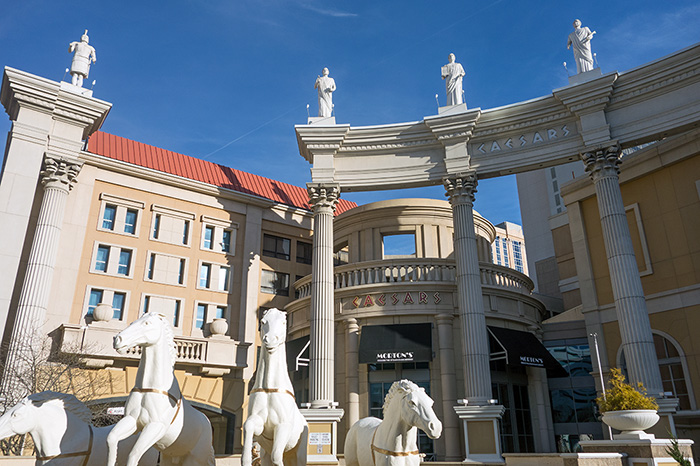
Caesars Casino, Atlantic City — © Brian Rose
In all the brouhaha about Public Theater’s production of Julius Caesar I’d like to point out that I made the connection to Shakespeare in a blog post on the day Trump’s inauguration. I used the quote below:
Men at some time are masters of their fates.
The fault, dear Brutus, is not in our stars,
But in ourselves, that we are underlings.
Cassius is trying to persuade Brutus to join the insurrection against Caesar, which in the case of the play leads to the assassination of the leader returning from war. In a literary sense it is about taking action as opposed to being a passive observer — that history is not determined by fate, but belongs to those who seize the moment.
The assassination of Caesar, however, does not lead to the triumph of Cassius and Brutus, but to their own deaths and the ascendence of Mark Antony. The empire is preserved, but at great cost.
As in all of Shakespeare’s tragedies, there are battles, literal and psychological, over honor and moral rectitude. Blood is inevitably spilled, and the heroes are often victims of their own flaws. Shakespeare’s plays are both highly dramatic entertainment and complex interrogations of human character.

Caesars Casino and the abandoned Trump Plaza in rear, Atlantic City — © Brian Rose
I wasn’t able to see the Public’s interpretation of Julius Caesar in Central Park (closing tomorrow) with Caesar portrayed as Donald Trump. One assumes, based on the plot of the play, that the murder of “Trump” should be seen as a cautionary tale. Violence leads to more violence, and to tyranny. We are left understanding that change must come through our democratic institutions, and when necessary, in the streets — peacefully.
That Trump supporters do not see this — or willfully refuse to see it — is, of course, to be expected.